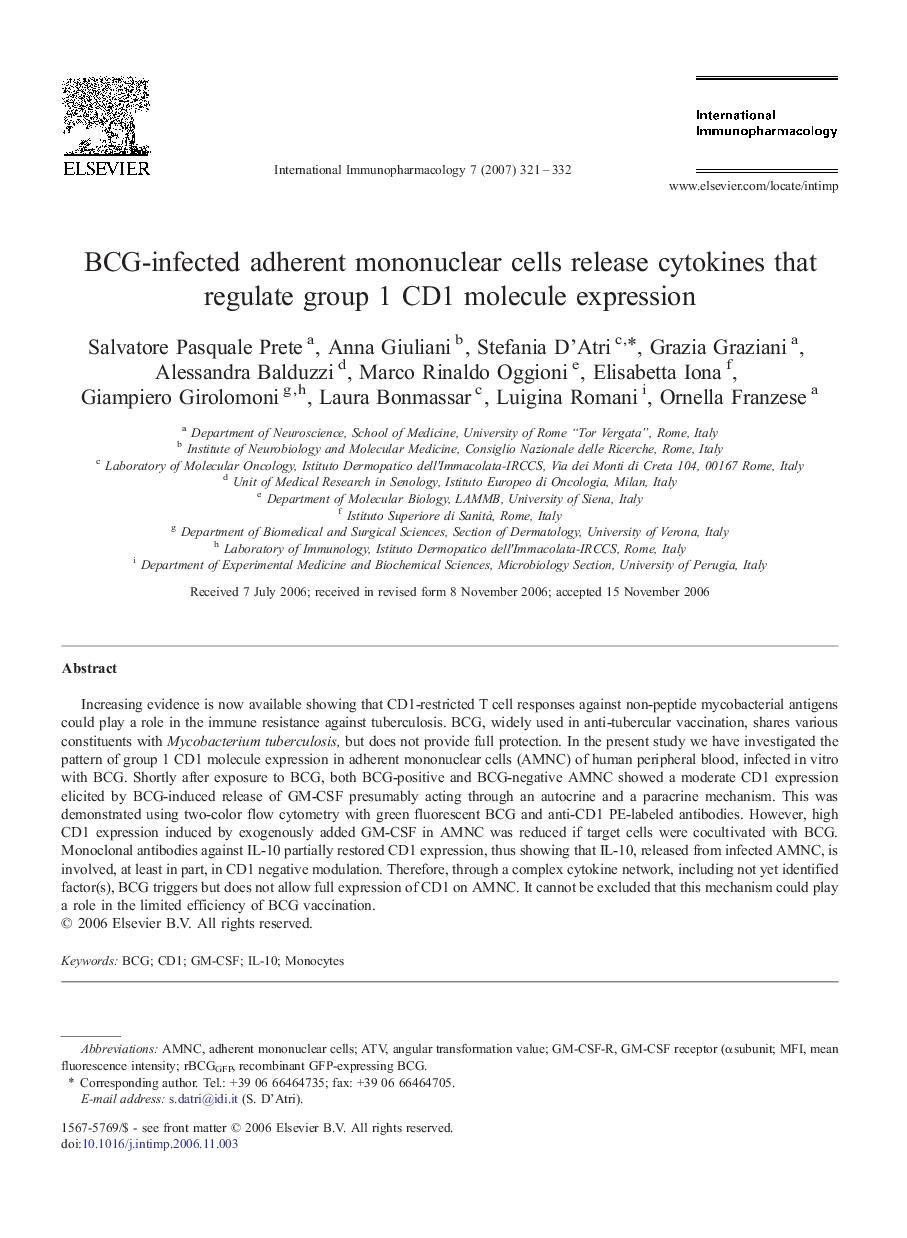| کد مقاله | کد نشریه | سال انتشار | مقاله انگلیسی | نسخه تمام متن |
|---|---|---|---|---|
| 2541703 | 1122671 | 2007 | 12 صفحه PDF | دانلود رایگان |
عنوان انگلیسی مقاله ISI
BCG-infected adherent mononuclear cells release cytokines that regulate group 1 CD1 molecule expression
دانلود مقاله + سفارش ترجمه
دانلود مقاله ISI انگلیسی
رایگان برای ایرانیان
کلمات کلیدی
موضوعات مرتبط
علوم زیستی و بیوفناوری
ایمنی شناسی و میکروب شناسی
ایمونولوژی
پیش نمایش صفحه اول مقاله

چکیده انگلیسی
Increasing evidence is now available showing that CD1-restricted T cell responses against non-peptide mycobacterial antigens could play a role in the immune resistance against tuberculosis. BCG, widely used in anti-tubercular vaccination, shares various constituents with Mycobacterium tuberculosis, but does not provide full protection. In the present study we have investigated the pattern of group 1 CD1 molecule expression in adherent mononuclear cells (AMNC) of human peripheral blood, infected in vitro with BCG. Shortly after exposure to BCG, both BCG-positive and BCG-negative AMNC showed a moderate CD1 expression elicited by BCG-induced release of GM-CSF presumably acting through an autocrine and a paracrine mechanism. This was demonstrated using two-color flow cytometry with green fluorescent BCG and anti-CD1 PE-labeled antibodies. However, high CD1 expression induced by exogenously added GM-CSF in AMNC was reduced if target cells were cocultivated with BCG. Monoclonal antibodies against IL-10 partially restored CD1 expression, thus showing that IL-10, released from infected AMNC, is involved, at least in part, in CD1 negative modulation. Therefore, through a complex cytokine network, including not yet identified factor(s), BCG triggers but does not allow full expression of CD1 on AMNC. It cannot be excluded that this mechanism could play a role in the limited efficiency of BCG vaccination.
ناشر
Database: Elsevier - ScienceDirect (ساینس دایرکت)
Journal: International Immunopharmacology - Volume 7, Issue 3, March 2007, Pages 321-332
Journal: International Immunopharmacology - Volume 7, Issue 3, March 2007, Pages 321-332
نویسندگان
Salvatore Pasquale Prete, Anna Giuliani, Stefania D'Atri, Grazia Graziani, Alessandra Balduzzi, Marco Rinaldo Oggioni, Elisabetta Iona, Giampiero Girolomoni, Laura Bonmassar, Luigina Romani, Ornella Franzese,